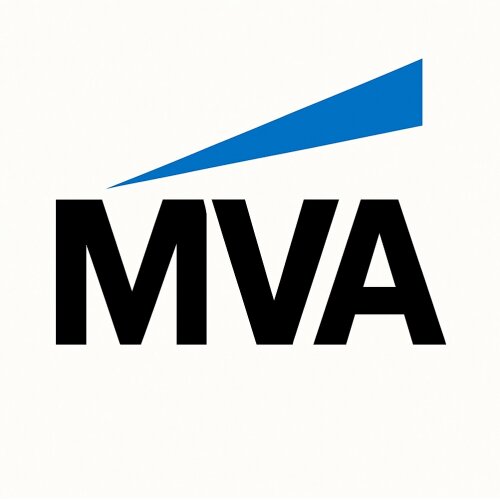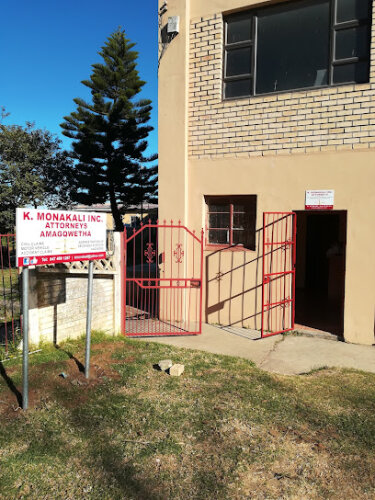Best Collaborative Law Lawyers in East London
Share your needs with us, get contacted by law firms.
Free. Takes 2 min.
Free Guide to Hiring a Family Lawyer
List of the best lawyers in East London, South Africa
About Collaborative Law in East London, South Africa
Collaborative Law is an innovative approach to dispute resolution that enables parties to resolve legal conflicts outside the traditional court process. In East London, South Africa, this method is particularly popular in family law matters such as divorce, separation, and child custody disputes. Collaborative Law encourages open communication, cooperation, and a focus on mutually beneficial outcomes. Parties work together with their collaboratively trained legal representatives and may involve other professionals, such as mental health experts and financial advisors, to reach an agreement that suits everyone's needs. The process is voluntary and confidential, with a shared commitment to resolving issues constructively.
Why You May Need a Lawyer
Many people in East London find themselves in situations where Collaborative Law can offer solutions that are more amicable and less adversarial than traditional litigation. Common scenarios where legal help in Collaborative Law may be required include:
- Divorce or dissolution of a civil partnership, particularly where children or shared property are involved.
- Child custody, access, and maintenance arrangements that require sensitive negotiation.
- Disagreements over spousal or child maintenance and support.
- Division of assets and liabilities following the breakdown of a relationship.
- Family business disputes requiring flexible and tailor-made solutions.
- Resolving issues related to parental rights and responsibilities.
- Desire to keep matters private and avoid public court proceedings.
A collaboratively trained lawyer can guide you through the process, provide legal advice, and help facilitate constructive dialogue with the other parties involved.
Local Laws Overview
In South Africa, including East London, Collaborative Law operates within the framework of existing family and civil law statutes, such as the Children’s Act, the Divorce Act, and the Maintenance Act. There is growing recognition among legal professionals and the courts of the benefits of alternative dispute resolution (ADR), including Collaborative Law. Key aspects to consider include:
- Collaborative Law is voluntary for all parties and can be exited at any time.
- Agreements reached collaboratively can be made legally binding through court orders for added security.
- All participants, including attorneys, must sign a participation agreement committing to good faith negotiation and full disclosure of information.
- If the process fails and court litigation is pursued, the collaboratively trained lawyers must withdraw, and new legal representatives take over.
- Confidentiality is a cornerstone: discussions and documents within the process generally cannot be used in subsequent litigation.
East London follows South Africa’s national statutes, but practitioners may also draw on local court protocol and community-based resources to support families in the process.
Frequently Asked Questions
What is Collaborative Law?
Collaborative Law is a legal process where parties, with the help of specially trained lawyers, resolve disputes amicably without going to court. The focus is on cooperation, transparency, and reaching solutions that benefit all involved.
How does Collaborative Law differ from mediation?
While both Collaborative Law and mediation seek to avoid litigation, in collaborative cases, each party has their own legal representative advocating for their interests but working cooperatively. Mediators act as neutral facilitators without representing either party.
Is Collaborative Law legally binding in East London?
Agreements reached through the Collaborative Law process can be made legally binding by submitting them to the appropriate court for endorsement, ensuring enforceability under South African law.
What types of disputes can be resolved using Collaborative Law?
Collaborative Law in East London is mainly used for family law matters such as divorce, child custody, maintenance, and division of assets, but it can also be applied to certain civil and commercial disputes.
Who should consider Collaborative Law?
Anyone seeking a respectful, private, and cost-effective way to resolve disputes without litigation, especially when ongoing relationships (like co-parenting) are involved, should consider Collaborative Law.
What happens if the collaborative process fails?
If parties cannot reach an agreement, they may choose to pursue the matter in court. The collaboratively trained lawyers must withdraw, and new legal representatives will need to be appointed for litigation.
How much does Collaborative Law cost?
Costs can vary depending on the complexity of the dispute and the professionals involved. However, Collaborative Law is often less expensive than lengthy court battles due to its efficient, cooperative nature.
Are children included in the collaborative process?
Children are not directly involved in meetings but their interests are central. Child specialists may sometimes be included to ensure decisions are in the best interests of the child, as per South African law.
Is Collaborative Law suitable for cases with a history of domestic violence?
Collaborative Law requires open and safe communication. Cases involving domestic violence, severe power imbalances, or intimidation may be better suited to court intervention for protection and fairness.
How do I find a collaboratively trained lawyer in East London, South Africa?
You can seek recommendations from the local law society, South African Association of Collaborative Professionals, or ask local law firms if they have accredited collaborative law practitioners on staff.
Additional Resources
If you are seeking more information or help regarding Collaborative Law in East London, consider the following resources:
- Eastern Cape Law Society - for referrals to qualified collaborative lawyers.
- South African Association of Collaborative Professionals - provides a directory of trained practitioners and educational materials.
- Department of Justice and Constitutional Development - for guidance on family law procedures and legal aid.
- Family and Divorce Mediation Centres - some also provide collaborative law consultations.
- Community Justice Centres - offer support and preliminary legal advice.
Next Steps
If you are interested in exploring Collaborative Law for your situation in East London, South Africa, here are some recommended steps:
- Consider whether a collaborative approach suits your needs for privacy, respect, and ongoing relationships.
- Contact local law firms or consult the resources above to find a collaboratively trained lawyer.
- Schedule a consultation to discuss your situation, learn about the collaborative process, and determine the best path forward.
- If both parties agree, sign a participation agreement and begin the collaborative process with your legal representatives and any relevant professionals.
- Work towards a mutually satisfactory resolution, knowing you can exit the process at any stage.
- If agreement is reached, ensure it is made legally binding through the appropriate legal channels.
Seeking professional legal advice early in the process can help you understand your rights and responsibilities, ensuring a smoother and more constructive outcome.
Lawzana helps you find the best lawyers and law firms in East London through a curated and pre-screened list of qualified legal professionals. Our platform offers rankings and detailed profiles of attorneys and law firms, allowing you to compare based on practice areas, including Collaborative Law, experience, and client feedback.
Each profile includes a description of the firm's areas of practice, client reviews, team members and partners, year of establishment, spoken languages, office locations, contact information, social media presence, and any published articles or resources. Most firms on our platform speak English and are experienced in both local and international legal matters.
Get a quote from top-rated law firms in East London, South Africa — quickly, securely, and without unnecessary hassle.
Disclaimer:
The information provided on this page is for general informational purposes only and does not constitute legal advice. While we strive to ensure the accuracy and relevance of the content, legal information may change over time, and interpretations of the law can vary. You should always consult with a qualified legal professional for advice specific to your situation.
We disclaim all liability for actions taken or not taken based on the content of this page. If you believe any information is incorrect or outdated, please contact us, and we will review and update it where appropriate.












